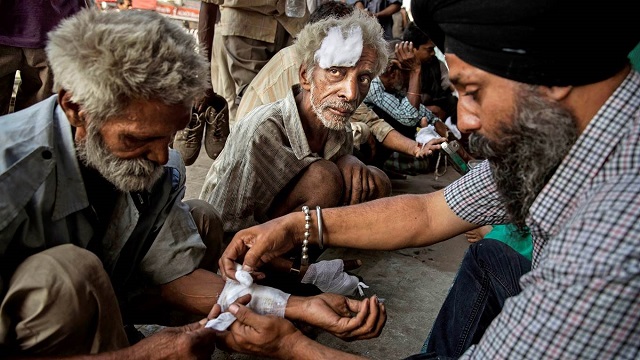
Today, some 800 million people spend at least 10% of their household budgets on health payments
COMMENT | SANIA NISHTAR | Half of the planet cannot access essential health services. For many people, paying to see a doctor, obtaining medications, seeking family-planning advice, or even getting immunised against common illnesses is a choice between staying healthy and slipping into poverty. And, more than ever, the health-care options that poor people do have are being degraded by a familiar foe.
In many low- and middle-income countries, corruption, inadequate spending, and wasted resources pose enduring challenges for health-care systems. Growing up in Pakistan, I saw people forced to go to extremes to secure health care. For example, families might be forced to sell off cattle and other valuables to pay exorbitant medical bills.
What is shocking is that the scourge of health-related poverty continues to claim victims today. Indeed, in some countries, people falling into poverty due to the high cost of health care is an everyday reality.
On a recent trip to Africa, I heard a harrowing story of a hospital where women and their newborns are routinely held hostage – often for months – until families can find the money to settle their bills. According to researchers at the University of California, San Diego, corruption, waste, and unethical billing cost patients and health systems billions of dollars annually. In the United States, as much as 10% of public-sector spending on health care is lost to fraudulent billing, and tens of millions face significant economic barriers to health care.
Clearly, improving health outcomes requires both increased government spending and an end to shady practices that siphon crucial resources from the health system. But how?
Around the world, corruption and collusion are institutionalised in many health-care systems. Of the $6.5 trillion spent annually on healthcare, an estimated $455 billion is lost, misused, or stolen. Simply put, health costs are bankrupting some of the poorest people in the world, because many of the richest are lining their pockets.
There is growing consensus that affordable, quality health care is a basic human right. The United Nations Sustainable Development Goals include universal health coverage as a target. And it is not only rich countries that have embraced this goal: from Thailand to Costa Rica to Rwanda, countries with mixed health systems and limited resources have dedicated funds and political capital to making universal health care a reality.
Steps are being taken to help these countries succeed. Last year, Japan pledged $2.9 billion to help developing countries achieve universal health coverage. And the World Bank has indicated that a country’s ability to borrow from it could eventually be tied to investments in human capital, including health spending.
But such gestures, however laudable – and overdue – will not be enough to remove the barriers to quality health services. Until corruption, theft, and wasteful and inefficient spending are addressed more vigorously, universal health coverage will remain aspirational.
Fortunately, governments are increasingly committed to solving the corruption crisis. Tax evasion and fraud – both common crimes – are drawing closer scrutiny from law enforcement agencies. Tax evasion doesn’t just enable money laundering; it also robs the public sector of important resources. This is one reason why the UN has made reducing illicit financial flows a key component of achieving the Sustainable Development Goals.
With broad agreement on the need to combat corruption in the health sector, the harder challenge will be developing workable remedies. National treasuries, finance ministries, and anti-corruption agencies need to strengthen their efforts to cooperate on prevention, detection, and enforcement. Improving transparency in financial systems could also help curb corruption, while civil-society groups, journalists, and patients should push for greater accountability from governments and medical providers.
In the future, new technologies like data mining, artificial intelligence, and blockchain could offer new ways to detect wrongdoing in the health sector; these and other tools should be investigated fully.
Expanding health-care access and protecting the sector’s finances are dual challenges that the international community must address together. There is an urgent need to act without delay. Rates of noncommunicable diseases like cancer, diabetes, and cardiovascular disease are increasing almost exponentially, and lack of access to quality care will add to many countries’ governance challenges.
Development strategists understand that poor health is a harbinger of poverty and a barrier to eliminating it. Today, some 800 million people spend at least 10% of their household budgets on health, often going into debt to fund the treatment they need. The fact that so many people cannot afford to visit a doctor is truly shameful. The world needs universal health coverage; but to achieve it, the world’s health sector must undergo treatment of its own.
*****
Sania Nishtar is a co-chair of the World Health Organization’s Independent High-level Commission on Noncommunicable Diseases, a former federal minister of Pakistan, and the founder and president of Heartfile. Find her on Twitter at @SaniaNishtar.
Copyright: Project Syndicate, 2018.
 The Independent Uganda: You get the Truth we Pay the Price
The Independent Uganda: You get the Truth we Pay the Price


